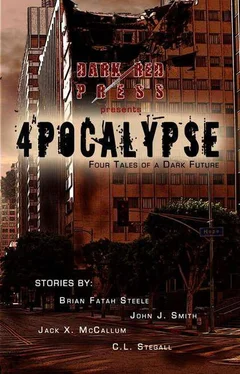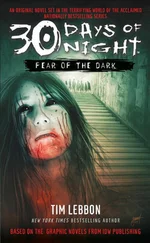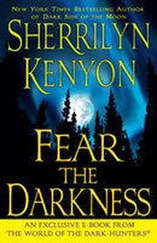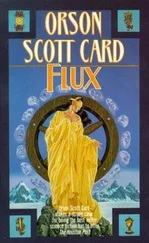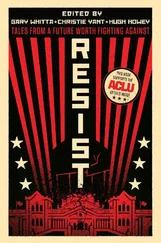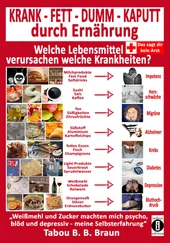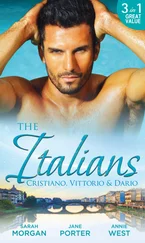Clyde let out a mournful howl as we pulled away from the dock.
The grins that had come into view fell under crossfire as soldiers came into view. When the soldiers saw the Zodiacs, they began shooting at us.
Conaghan’s boat hit a swell and lurched. An older lady fell into the sea. The boats kept going.
Whenever we rose up on a swell the soldiers on the pier fired at us. Then we would sink down out of sight, bullets passing overhead with the high pitched whine of wasps. I was thinking that this freakish luck couldn’t possibly last when two spotlights shone out from a hundred feet away and a loudspeaker blared.
“This is the Unified Containment Task Force operating under the authority of the Government of the United States. Return to the pier now or we will shoot.”
One of the UCTF craft turned on a swell and illuminated the other. They were small, powerful Sea-Doo boats, each carrying a driver and two men with rifles.
“Holy shit, dude,” Ben said. “Those are Speedsters. They can go, like, sixty miles an hour.”
I heard a shot echo across the water from behind. I didn’t know what to do.
Then I remembered visiting a friend who had lived on the pier years ago. I remembered us drinking beer in his old Chris-Craft, and I remembered the hair-raising stunt he pulled with a small motorboat.
I shouted to Conaghan and saw him nod. “Follow us! And everyone stay as low as you can!”
We turned the Zodiacs back to Pier 39, with the Speedsters closing behind us and armed men watching our approach from the edge of the pier.
“Keep going,” I said to Ben, as we passed the wooden fingers jutting from the dock where we had found the boats. The pier began looming over us. “Keep going,” I said again. He looked into the dark gap between the rising and falling sea and the massive concrete slabs of the pier that made a foundation as broad as a city block, and gave me a nervous smile.
“You’re kidding, right?”
I shook my head.
“That’s a big pier, but it’s just a pier, on pilings. There are a few feet of clearance under there. Depending on the height and depth of the swell, of course.”
“Dude,” Ben said.
I was carrying a big Mag Lite. I turned it on and it became our only headlight. I looked up to see the soldiers on the pier gaping down as us as we disappeared under their feet.
It had been a long time since I’d done this, and I swore I would never do it again after a drunken, claustrophobic ride with my buddy.
The foundation of the pier was now a ghostly gray roof over our heads, and the sounds of the Zodiacs’ engines were very loud, reflected by water and concrete. Whenever the boat rose on a swell everyone ducked down.
I looked back and saw that the pilots of the Speedsters were hesitating; their boats were riding higher in the water than the overloaded Zodiacs. Then they came at us full throttle, realizing what I hoped they would not; we could travel under the narrowest part of the pier and come out on the other side.
I urged Ben forward, and now two other flashlights were switched on, helping him steer around massive concrete pilings encrusted with wet barnacles and crabs that seem to watch us curiously as we roared by them.
There was a massive swell that lifted all of us. Someone in Conaghan’s boat screamed and I felt my go bag brutally pressed down against my back as the sea pushed us up against the unyielding stone overhead.
I heard a buckling crunch and a cry from one of the Speedsters behind us that was abruptly cut off. Then one of the engines behind us sputtered and died.
I had Ben turn as at ninety-degree angle. Instead of quickly coming out into the open from the other side of the pier we were now traveling under its length.
“Fast as you can go,” I whispered to him. Then I turned and shouted, “Hey you pussies, I thought American soldiers had balls?”
That was answered by the glare of a spotlight, a burst of gunfire and the roar from the engine of the remaining Speedster as the driver went all out in pursuit.
There was another series of swells, short and choppy. Ben eased up on the throttle to slow our boat and turned in to the rough swells to avoid being tossed about.
When I looked back I saw the Speedster’s spotlight turn away from us and heard men crying out as the boat that was moving far too fast brushed against one thick concrete piling and then slammed into another. There was no dramatic fireball, like we used to see in the movies. The light went out, and the boat sank.
We came out from under Pier 39 missing two people. They must have fallen out of the Zodiacs during the chase. The children in our boat, huddled down at the adults’ feet, were scared but otherwise okay.
I looked over at Conaghan’s boat and was relieved to see the big man still at the tiller, and Renfield and Dr. Anders seated behind him.
Conaghan saw me and shook his head. Then he grinned.
We headed out to sea steering for the lights of Alcatraz. It was a long trip in the Zodiacs. Many of us looked back. What had once been a familiar skyline was now a dark shoreline crowned by fire. It was cold out on the water, and I’m sure every one of us felt terribly alone.
My shoulder hurt like hell, and I was very tired. A pretty teenager named Annie made me a sling out of a strip of cloth. That helped. Someone else offered me a few Tylenol from their go bag. There were no more emergency rooms, no more annual check-ups, no more dentists or ophthalmologists. At least not for us, not for a long time. Christ.
Behind us, powerful lights cut through the fog overhead, and as I looked back I could make out the seething masses of hundreds and hundreds of grins at the water’s edge. There must have been other units besides the one that shot at us, herding the pathetic creatures to the furthest point they could go.
Helicopters dropped out of the fog layer, floodlights turning night into day on the pier. The choppers quickly dipped down to pick up soldiers and whisk them away.
We were halfway to the island when there was a rolling boom in the fog overhead. It wasn’t thunder. It was—
“They’re on their way,” Renfield said, as he hunched over his radio. “They’re running a bit ahead of schedule.” He looked at one of the few working wristwatches among our group. “It’s only a quarter to tomorrow.”
We were fighting a current and closing in on Alcatraz when we heard the distinct sound of aircraft overhead.
There was still a layer of fog like a low ceiling over the city. It swallowed buildings on the higher hills, and the top stories of office towers in the Financial District. The tip of the Transamerica Pyramid was lost in soft whiteness. The jets we heard were flying in that fog.
The sounds of the aircraft dwindled as they flew south, inland, and then they turned north and began their bombing run.
Bright orange blossoms bloomed on distant hills and created an intense otherworldly glow inside the fog, and then roiling balls of fire marched down out of the fog toward sea and bay.
Familiar landmarks crumbled as explosions erupted one after another, skyscrapers toppling and block after block became a shimmering conflagration.
The light of fires burning closer to sea level danced against that low ceiling of water vapor, turning it into a shifting red mass overhead, like blood on the water.
Soon most of San Francisco was burning. It had burned once before, after the great earthquake in 1906. I wondered if anyone would rebuild the city this time, and thought it unlikely.
I saw the shifting masses of the infected standing on the water’s edge. They could not or would not swim. I could not see their faces, only bodies, silhouettes before a raging inferno.
I was glad I couldn’t see the faces. Seeing human beings, no matter how deranged by disease, smiling as they burned alive… that was a memory I could do without. I wondered if any humanity remained in them. Did they look back in terror as they saw the fires descend upon them?
Читать дальше
